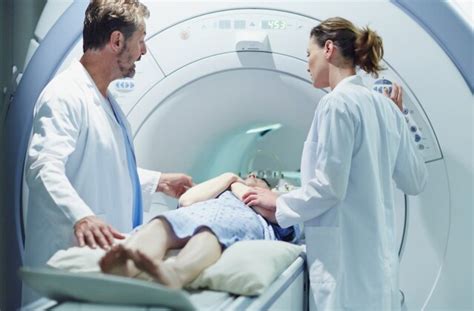Intro
Discover the exciting world of nuclear medicine technician jobs. Learn about the career overview, job outlook, and growth prospects in this field. Explore the roles, responsibilities, and required skills of nuclear medicine technologists, and find out how to pursue a rewarding career in this specialized field of healthcare.
The field of nuclear medicine has revolutionized the way we diagnose and treat diseases. At the forefront of this field are nuclear medicine technicians, highly skilled professionals who play a crucial role in the diagnosis and treatment of various medical conditions. As the demand for nuclear medicine services continues to grow, so does the demand for qualified nuclear medicine technicians.
In this article, we will delve into the world of nuclear medicine technician jobs, exploring the career overview, job responsibilities, educational requirements, salary ranges, and job outlook. Whether you are a student considering a career in nuclear medicine or a professional looking to transition into this field, this article will provide you with the information you need to make informed decisions.
What is a Nuclear Medicine Technician?

A nuclear medicine technician is a healthcare professional responsible for preparing and administering radioactive substances to patients for diagnostic and therapeutic purposes. These technicians work closely with physicians and other healthcare professionals to ensure that patients receive accurate diagnoses and effective treatments.
Nuclear medicine technicians are responsible for a wide range of tasks, including:
- Preparing and administering radioactive substances to patients
- Operating imaging equipment, such as gamma cameras and PET scanners
- Monitoring patients during procedures
- Analyzing images and data to ensure accurate diagnoses
- Maintaining accurate records of patient procedures and results
Types of Nuclear Medicine Technician Jobs
There are several types of nuclear medicine technician jobs, each with its own unique responsibilities and requirements. Some common types of nuclear medicine technician jobs include:
- Nuclear medicine technologist: These technicians work in hospitals and clinics, preparing and administering radioactive substances to patients for diagnostic and therapeutic purposes.
- PET technologist: These technicians specialize in working with positron emission tomography (PET) scanners, which use radioactive substances to create detailed images of the body.
- Nuclear cardiology technologist: These technicians work in cardiology departments, using nuclear medicine techniques to diagnose and treat heart conditions.
- Research nuclear medicine technologist: These technicians work in research settings, using nuclear medicine techniques to develop new treatments and diagnostic procedures.
Education and Training Requirements

To become a nuclear medicine technician, you will typically need to complete a formal education program in nuclear medicine technology. These programs are usually offered at the associate's or bachelor's degree level and include both classroom and clinical training.
Some common education and training requirements for nuclear medicine technicians include:
- Associate's degree in nuclear medicine technology
- Bachelor's degree in nuclear medicine technology
- Certificate program in nuclear medicine technology
- Clinical training in a hospital or clinic setting
- Certification by the Nuclear Medicine Technology Certification Board (NMTCB)
Certification and Licensure
Certification and licensure requirements for nuclear medicine technicians vary by state and employer. Some common certifications for nuclear medicine technicians include:
- Certified Nuclear Medicine Technologist (CNMT)
- Registered Nuclear Medicine Technologist (R.N.M.T.)
- Certified Molecular Imaging Technologist (C.M.I.T.)
Salary Ranges and Job Outlook

The salary range for nuclear medicine technicians varies depending on factors such as location, employer, and level of experience. According to the Bureau of Labor Statistics (BLS), the median annual salary for nuclear medicine technicians was $76,840 in May 2020.
The job outlook for nuclear medicine technicians is also promising, with the BLS predicting a 7% growth in employment opportunities from 2020 to 2030. This growth is driven by the increasing demand for nuclear medicine services, particularly in the areas of cancer diagnosis and treatment.
Work Environment and Schedule
Nuclear medicine technicians typically work in hospitals, clinics, and research settings. They may work irregular schedules, including evenings and weekends, and may be required to be on call.
Some common work environments for nuclear medicine technicians include:
- Hospitals
- Clinics
- Research centers
- Imaging centers
- Cancer treatment centers
Skills and Qualities

To be successful as a nuclear medicine technician, you will need to possess certain skills and qualities, including:
- Attention to detail
- Ability to work with patients and families
- Strong communication skills
- Ability to work in a fast-paced environment
- Knowledge of radiation safety procedures
- Ability to operate complex imaging equipment
Professional Development
To stay current in the field of nuclear medicine, technicians must participate in ongoing professional development. This may include:
- Attending conferences and workshops
- Participating in online training programs
- Reading industry publications
- Joining professional organizations
Conclusion
A career as a nuclear medicine technician can be rewarding and challenging, offering opportunities to work in a variety of settings and to make a difference in the lives of patients. With the demand for nuclear medicine services continuing to grow, the job outlook for nuclear medicine technicians is promising.
If you are considering a career as a nuclear medicine technician, we encourage you to learn more about this exciting field. With the right education and training, you can embark on a rewarding career in nuclear medicine.
What is the average salary for a nuclear medicine technician?
+The average salary for a nuclear medicine technician is around $76,840 per year, according to the Bureau of Labor Statistics.
What kind of education and training do I need to become a nuclear medicine technician?
+To become a nuclear medicine technician, you typically need to complete a formal education program in nuclear medicine technology, which can include an associate's or bachelor's degree, as well as clinical training and certification.
What is the job outlook for nuclear medicine technicians?
+The job outlook for nuclear medicine technicians is promising, with the Bureau of Labor Statistics predicting a 7% growth in employment opportunities from 2020 to 2030.
